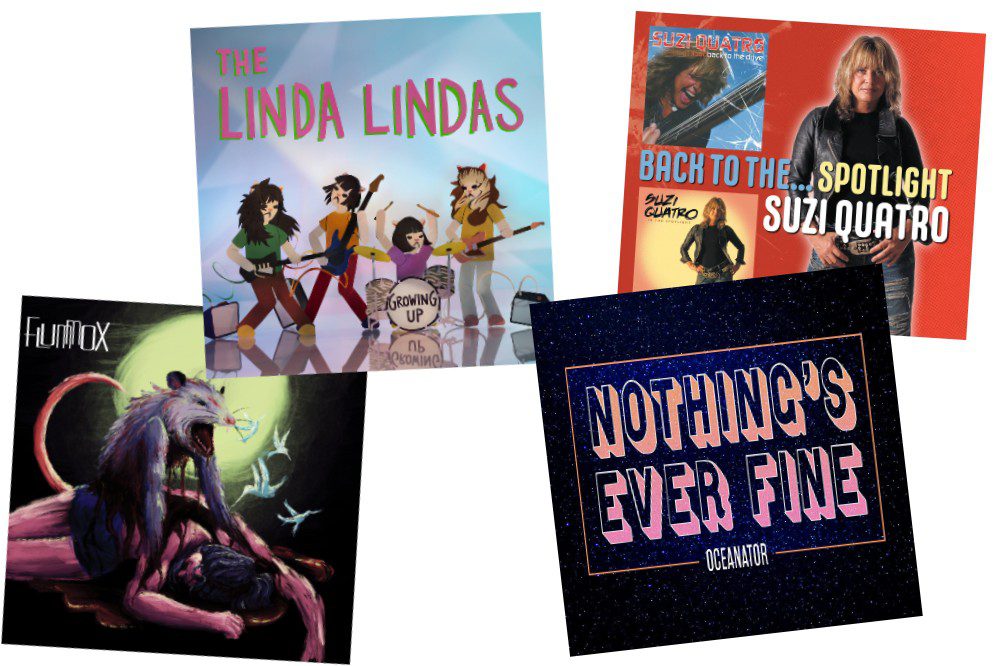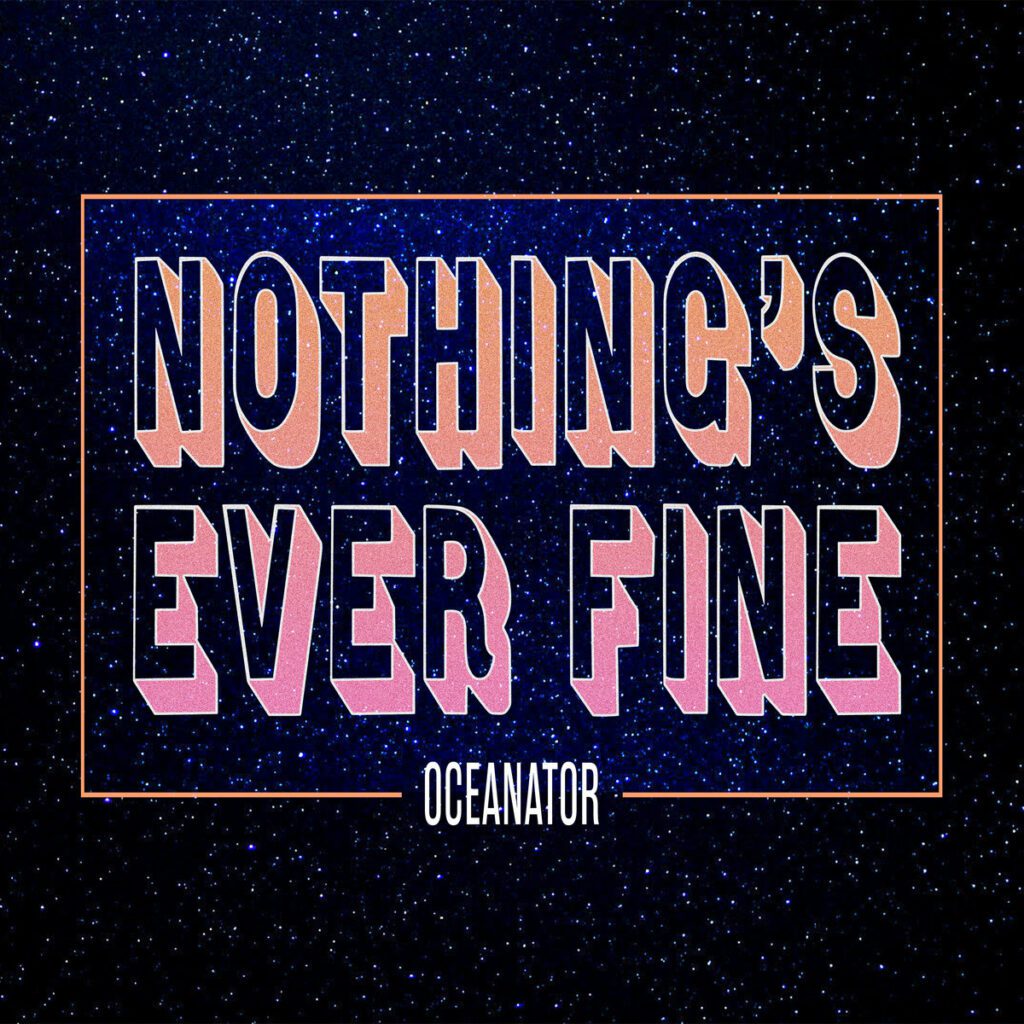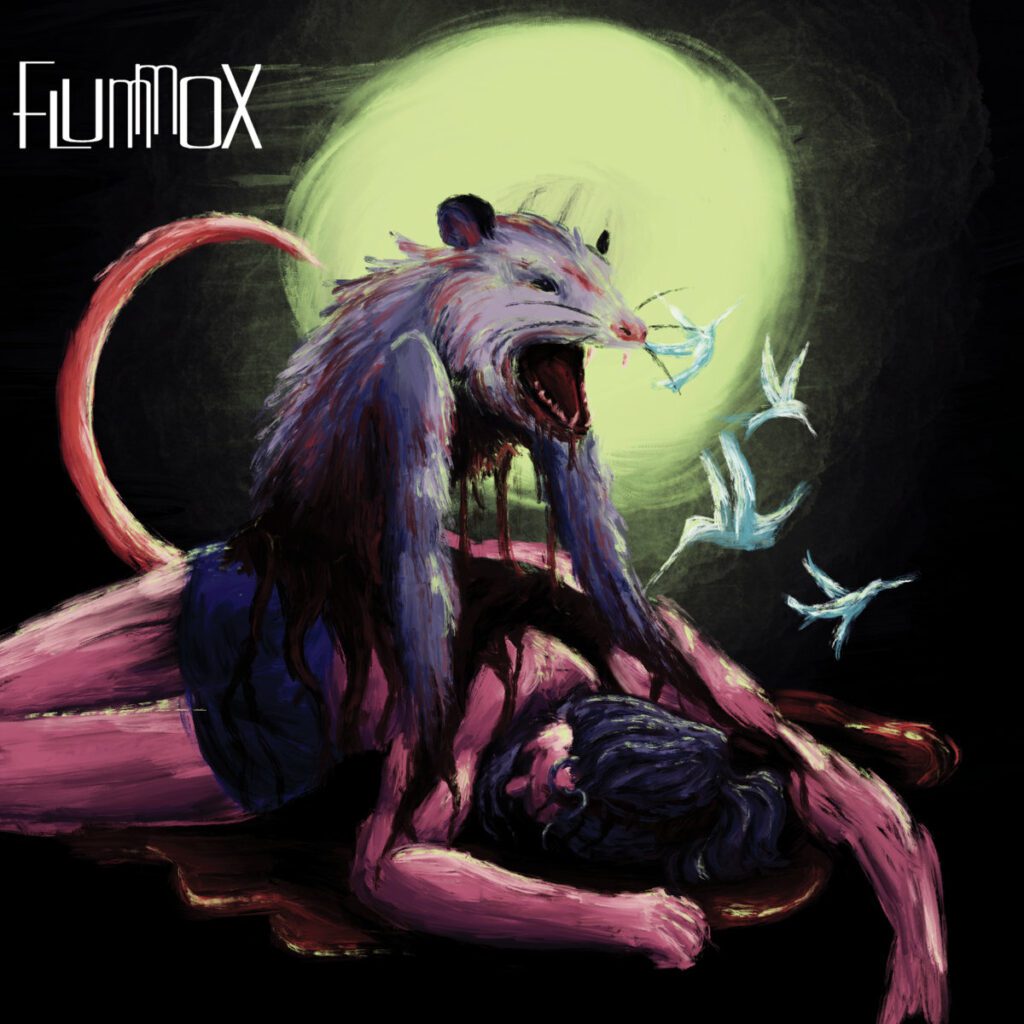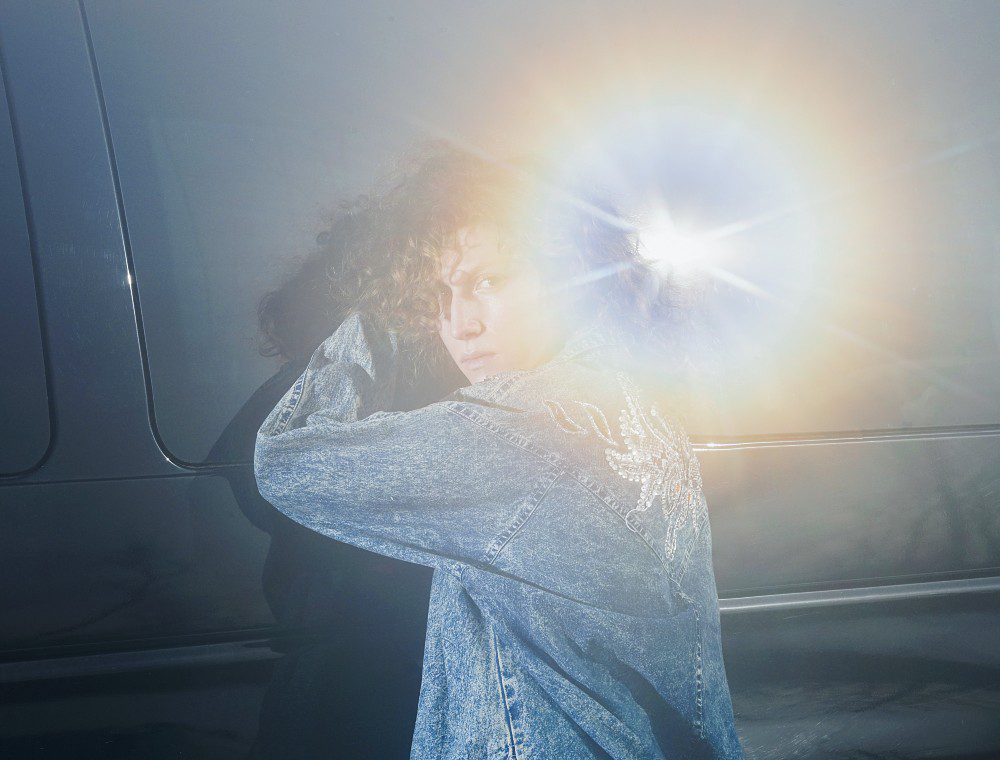
Welcome to Audiofemme’s record review column, Musique Boutique, written by music journo vet Gillian G. Gaar. The last Monday of each month, Musique Boutique offers a cross-section of noteworthy reissues and new releases guaranteed to perk up your ears.

Brooklyn-based musician Elise Okusami has released her sophomore record as Oceanator, Nothing’s Ever Fine (Polyvinyl Record Co.). The album takes you through the course of a single day, an emotional journey that’s both fraught and reflective. The shimmering guitars of the opening track, “Morning,” hint at the turmoil that lies ahead. But the day gets off to a good start with “The Last Summer,” a fond look back at the bygone days of cruising around with your friends, and “Beach Days (Alive Again),” about the glory of spending time in the sun.
Then reality comes crashing back in the stark “Solar Flares,” as that sun turns into a destructive force (“The lights fade/And the grid fails/The phones are down/No water to be found”). From that point on, tensions rise. “Stuck,” with its crunchy guitars and quiet verse/loud chorus dynamic is reminiscent of ’90s indie rock (think Pixies, Nirvana). “From the Van” is a twisted trip on the road to nowhere, a gnarly mash-up of grunge and Beach Boys harmonies. The bright pop of “Bad Brain Daze” can’t disguise the incessant anxiety that runs through the song like the sound of a clock that’s ticking too loudly. Nightfall brings some solace in “Summer Rain.” But while the closing song, “Evening,” starts out with dulcet tones, it soon escalates into an all-encompassing roar of sound that leaves you with a sense of unease. Nothing’s Ever Fine is an excellent depiction of the uncertainties that might plague you during your waking hours, set to a roiling musical backdrop that demands your attention.

The Linda Lindas were already making a splash. The LA-based band, formed in 2018 by two sisters, their cousin, and a friend (then between the ages of 8 and 13), quickly found themselves opening for Bikini Kill, appearing in Amy Poehler’s movie Moxie, and recording a song for the documentary The Claudia Kishi Club. Then a video of the band performing on May 4, 2021, at a branch of the Los Angeles Public Library went viral, and everything ramped up; by the end of that month they had a record deal with Epitaph.
Now comes their debut album for the label, Growing Up, an invigorating, joyful blast of poppy punk. There are songs about cats, like “Nino,” the savage killer of mice and rats who’s nonetheless the “friendliest cat you’ll meet.” There are songs about racism, including the raging “Racist Sexist Boy,” inspired by a comment made to drummer Mila de la Garza at school, and the similarly themed “Cuántas Veces” (the band’s members are of Asian and Latino heritage). “Talking to Myself” is about the anxiety of being alone during a time of isolation (and also has a great video inspired by a Twilight Zone episode). If “Why” strikes a despairing note (“I just shout and never sing/No one likes it anyway”), the overall vibe is decidedly positive, centered around the group’s empowering credo, “We rebuild what you destroy.” And in the best punk tradition, the album’s running time is just under 30 minutes.

After getting her start in her father’s band, the Art Quatro Trio, and then joining her sister Patti in the Pleasure Seekers, Suzi Quatro moved to the UK in 1971 to pursue a solo career. The hits “Can the Can,” “48 Crash” and “Devil Gate Drive” followed, while in the US she became best known for the song “Stumblin’ In,” a duet with Chris Norman, and recurring role as musician Leather Tuscadero in Happy Days.
She’s since pursued a career in film, theater, and radio, but she never stopped recording, and 7TS Records is now reissuing some of her back catalogue. Up first is Back to the…Spotlight, featuring her first two albums of the 21st century, Back to the Drive (2006) and In the Spotlight (2011), as well as bonus tracks. They’re both albums that take her back to her rock ‘n’ roll roots. On the former, the title track has all the bracing swagger of the best of her ’70s work, the sassy “I Don’t Do Gentle” channels 1950s Elvis, and she powers through a storming cover of “Rockin’ in the Free World.” On In the Spotlight both “Rosie Rose” and Goldfrapp’s “Strict Machine” crackle with innuendo, there’s a rollicking cover of Elvis Presley’s “Hard Headed Woman,” and the best bonus track on the set, a cover of Abba’s “Does Your Mama Know.”

The words “Queer/Transfemme Nashville Prog/Metal band” in the subject heading of the email caught my eye – how can you not want to find out more from that description? Not to mention the “RIYL” tag that included not only Primus and Ween, but also Frank Zappa and Danny Elfman. Thus I discovered Flummox and their latest album, Rephlummoxed (Needlejuice Records).
You don’t have to see the band in performance to know there’s a strong element of theatricality in their work. Alyson Blake Dellinger, the band’s lead vocalist/bassist, says they wanted the track “Pan’s Daughter” (inspired by Arthur Machen’s novella The Great God Pan) “to sound like a horror film,” and the song’s grinding maw of sound, which switches into a pummeling overdrive, then burns out leaving nothing behind but ashes, certainly brings some unsettling imagery to mind.
But not every song sounds like it’s trying to beat you into submission. “Hummingbird Anthem” is something of a country-esque stomper. “Custodian Ralph” has a taut new wave beat underlying an increasingly fractured melody. Then in comes the headbanging power of “The Whispering Banshees,” no holds barred rawk that shakes you down to your shoes. Take a walk on the wild side.




